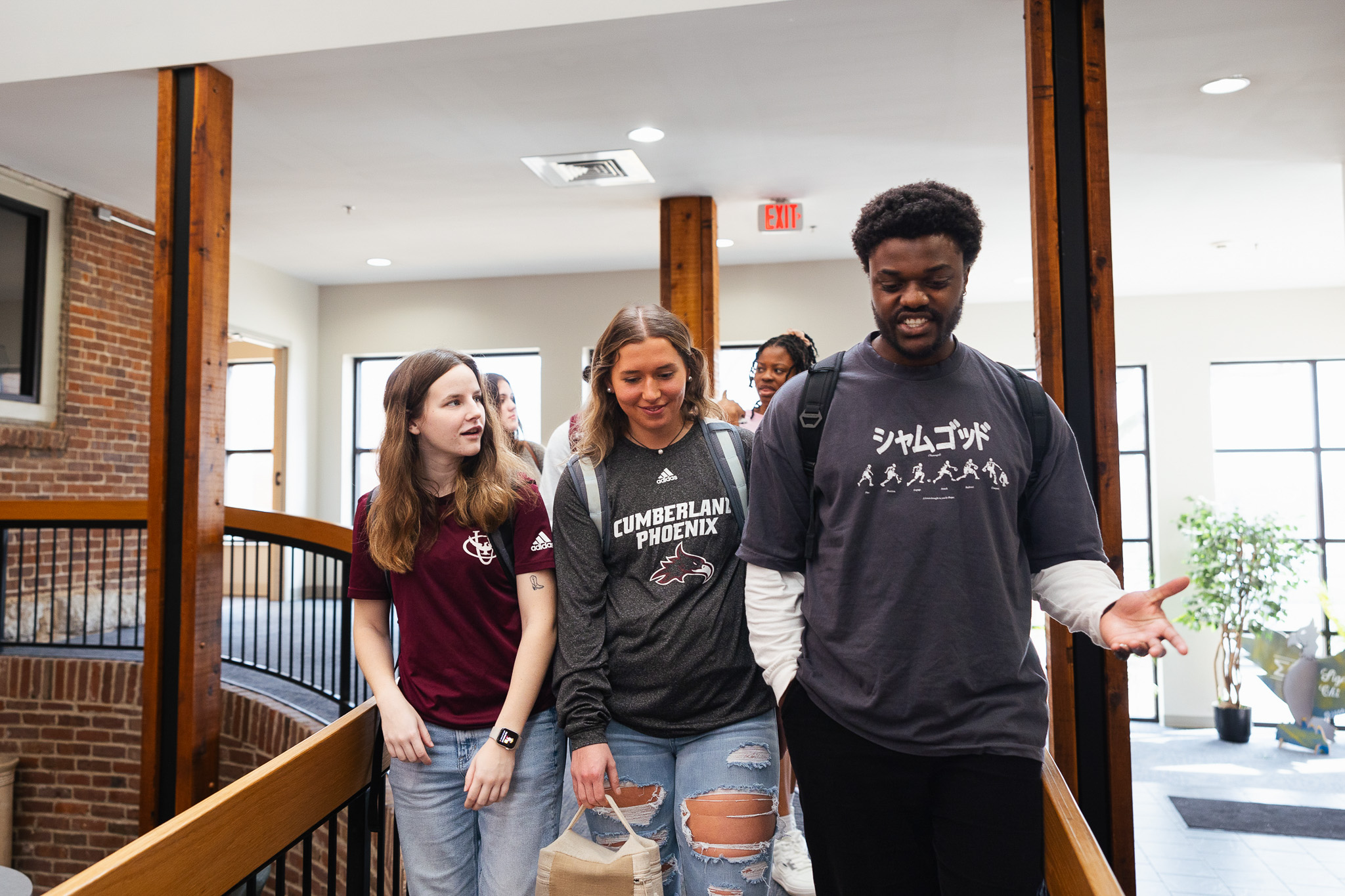By Fiyinfoluwa Awodele
I started my higher education journey in Fall 2017, armed with a pair of noise-canceling Bose headphones gifted by my father—a spontaneous gift prompted by the realization that the last leg of my flight to campus would be by propeller plane. Stepping onto campus for the first time, I was met by a wet August heat that only southern states could muster. It served as an immediate reminder that I was no longer in the comfort of my home.
My upbringing was deeply rooted in an educational focus, with my parents staunch believers in the transformative power of education. However, as I approached the end of my sophomore year of college, I found myself hitting a wall and questioning the singular benefit of education. Fast forward seven years, and I am now beginning a Master’s degree at Cumberland, allowing hindsight to sharpen and refine my perspectives.
In Omaha, where the Black percentage hovers just below 12%, the experience of being in the minority varied depending on the neighborhood. My chosen university, a predominantly white institution (PWI), provided unexpected exposure to a diverse population of black contemporaries. Reflecting on my time there as an undergraduate student, I’ve pondered the statistical imbalances that can lead to de facto social segregation, or perhaps my trajectory was always leading me in this direction. Regardless, I found a newfound community and awareness that made me keenly aware of being a black face in a white sea.
Telling personal stories involves navigating what is irrelevant and what will lead to a more desirable outcome. I could recount the dubious looks from other students as I walked to classes or the unconvinced blank stares after clarifying that my friends and I were students, not athletes. These microcosms mirror more significant issues concerning racial relations in the world.
Being a Resident Assistant (RA) was a source of pride during my undergraduate years. It kept my grades in check and allowed me to play a unique role on campus. My mission was to dispel the notion that RAs were only enforcers of campus justice. Instead, I aimed to showcase a diverse corps invested in restoration. One day, my RA partner and I were called in to respond to a drug report. At the time, marijuana had recently been decriminalized in the state but was a banned substance on campus. It was policy to get into the students’ rooms, give them a chance to admit to whatever had been done, and ensure that no contraband would be disposed of prior to the authorities arriving. This student was entirely amicable with me and brought out everything they had. In the meantime, my RA partner greeted the police officer on call outside the dorm to explain the situation. Yet, as soon as the officer entered the room, I was the interrogation target. It was not until my RA partner stepped in that the officer relented and acknowledged the fact that I was not the perpetrator but instead was the steadying figure in the situation.
Just a month after this event, I attended a hall dinner alongside my residents and those of a female dorm. I did not particularly want to be in attendance that night, but I was there with two of my best friends, so I figured everything would be alright. After securing a table with enough seats for all the students attending, a woman showed up and sat diagonally from me. After a brief introduction and going our separate ways, we would reconnect at a local choir tryout. Not long after that, we’d go on our first date, and now, 4 years later, that woman is my wife.
These glimpses into my life are only brief and singular snapshots. While they don’t encapsulate my experiences, they mirror the oscillation between moments of brightness and shadow, a narrative familiar to many black students. Having completed a four-year undergraduate degree and now embarking on an MBA journey at Cumberland, I am aware that numerous students, both newcomers and seasoned, tread onto campuses daily, their emotions swirling in a complex mix. The years ahead in academia will undoubtedly unfold with a blend of highs and lows, triumphs and challenges; know that these experiences, not just your classes, are your higher education like W.E.B. DuBois said, “School houses do not teach themselves – piles of brick and mortar and machinery do not send out men. It is the trained, living human soul, cultivated and strengthened by long study and thought, that breathes the real breath of life into boys and girls and makes them human, whether they be black or white, Greek, Russian or American.”
In honor of Black History Month, Cumberland University is excited to host Judge Sheila Calloway as part of the Vise Library Speaker Series on February 29, 2024 at 2:00PM. Judge Calloway serves the Davidson County Nashville Juvenile Court. Her engagement at CU will commemorate Black History Month and celebrate Black professionals.


